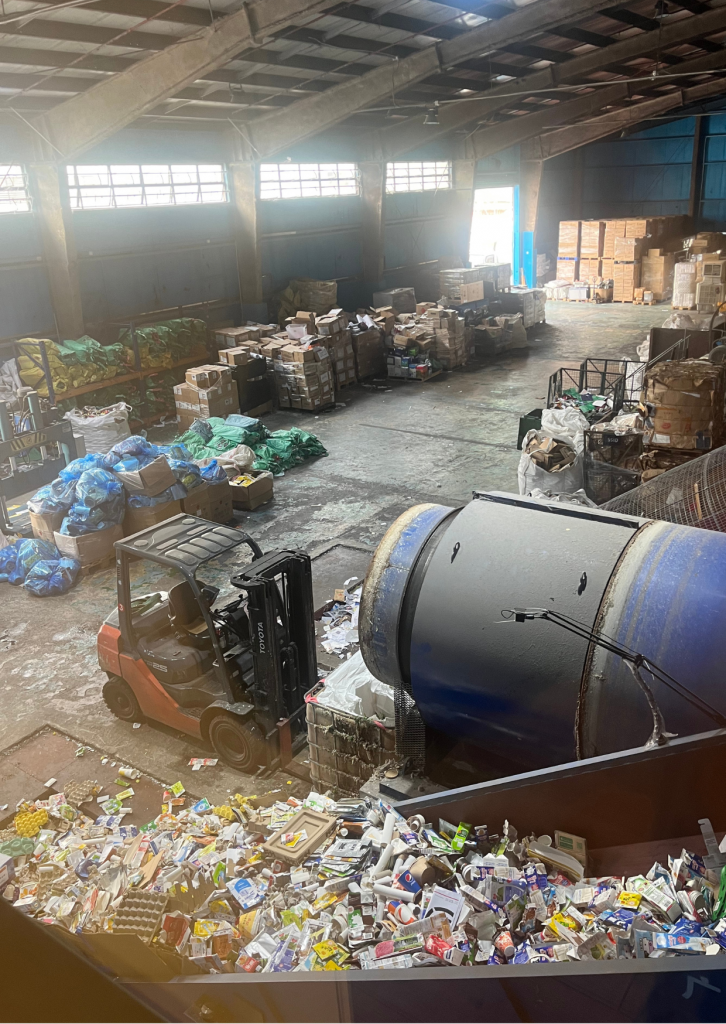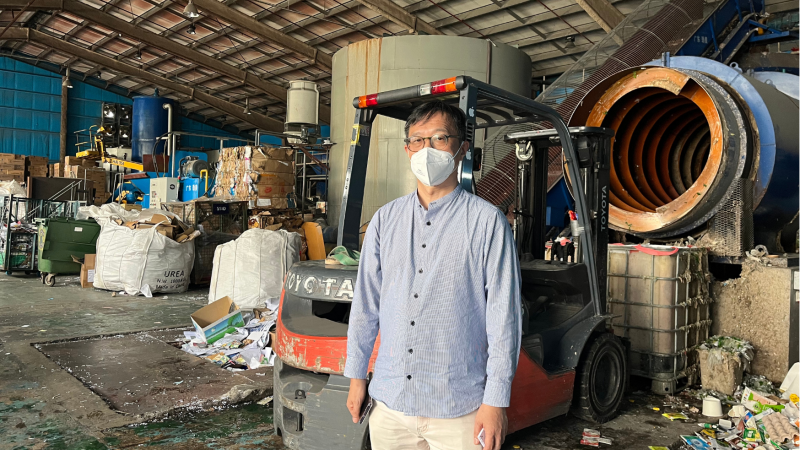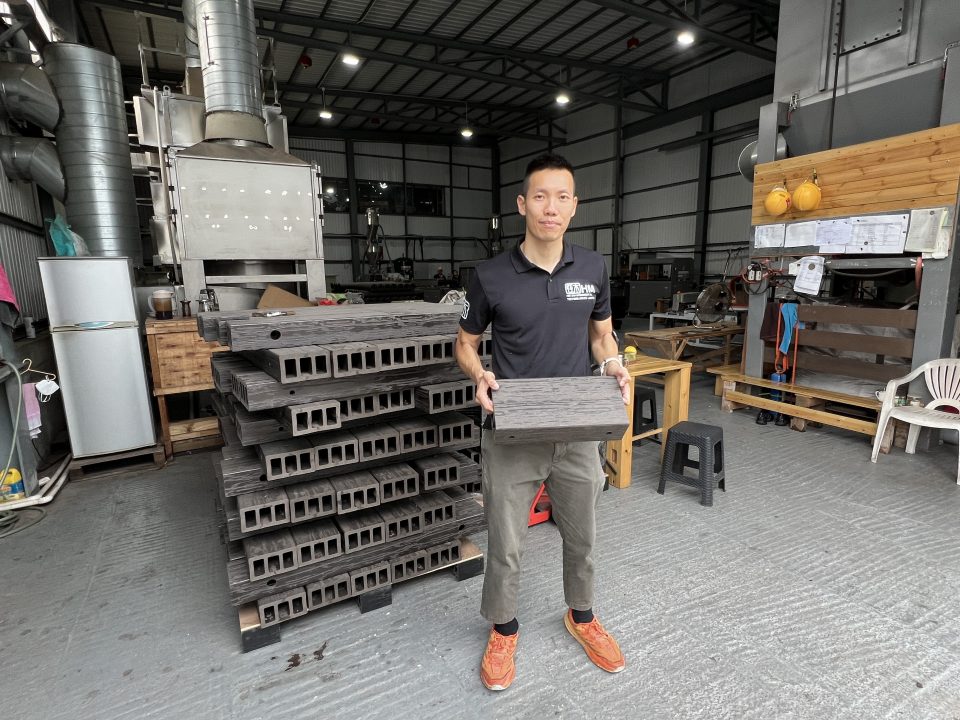
Co-living with the Sea: Diving Adventure’s Work in Marine Conservation and Social Inclusiveness
August 15, 2022
ARTA Architects: Communicating through works – Thoughts on architecture that highlight community engagement
January 18, 2023Secure Information Disposal Services Limited – The philosophy of taking one step at a time: Turning a new page with innovative thinking and equipping oneself
Standing on the second floor of the recycling plant, Harold Yip looked over at the workers downstairs and said gently, “Notwithstanding, I always love Hong Kong, and am interested in waste.” Waste recycling has never been a popular industry, but he has persisted in the space for more than a decade.
Harold is one of the owners of Mil Mill, and the founder of its parent company, Secure Information Disposal Services Limited (SSID). The company primarily focuses on the paper recycling business. In most people’s eyes, paper recycling appears to be a simple process: converting used white paper from offices into something new is deemed easy. But according to Harold, the process of recycling paper products is rather complicated, and it took SSID seven years of losses to make a name for itself.
| SSID was founded in 2009 by Harold and his partners. Now with 13 years of history and about 50 employees, SSID has its own recycling plant in Yuen Long, handling waste paper recycling and other operations. Being part of the recycling industry, SSID has been integrating sustainable development into its business for many years, promoting a work model that focuses on Sustainable Development Goals of “ensuring sustainable consumption and production patterns”, “making cities and human settlements inclusive, safe, resilient and sustainable”. and “building resilient infrastructure, promoting inclusive and sustainable industrialization, and fostering innovation”. |
Breaking the norm through innovation
[Innovation]
For more than 10 years, SSID has expanded its business from waste tracking for different companies to the sale of recycled toilet paper locally, successfully becoming known by the general public. Despite experiencing the lows, Harold believed that only an innovative mindset could take the recycling sector further. Harold laughed and said, “We’re just always making baby steps and moving one step at a time.” He explained that paper recycling had long been overlooked in the recycling industry. When it comes to recycling, people tend to think of scrap plastic and metal. But if we take a closer look at the landfill waste figures, we will find that paper is the second largest source of waste in Hong Kong, just after food waste. Harold attributed this to the lack of awareness of paper recycling in Hong Kong.
This is why the founders have always been promoting the concept in different ways. At the very beginning, the co-founders came up with the idea of applying RFID (Radio Frequency Identification), a professional technology, to the destruction of confidential documents and waste tracking. With RFID installed on garbage bins, it can trace the source of the waste, and enable discussions with the stakeholders to reduce waste at source. “It’s all about prescribing the right remedy.” The company has since been providing recycling consulting and auditing services to other businesses, extending their ideas out into the community. In its own plant, SSID has also introduced pulping technology to upcycle more paper products, such as beverage carton boxes, allowing for a wider range of products.

Two years ago, SSID also established Mil Mill, an educational centre above the plant to educate the public in a casual way about paper recycling. At the same time, the facility is open to the public, offering guided tours to allow more people to view the manufacturing equipment up close and witness the recycling process. Mil Mill can be said to begin the next chapter of SSID’s story. Besides educational purposes, the publicity led by Mil Mill should not be neglected. Mil Mill collaborates with large corporations such as Nan Fung to recycle their waste paper and pulp the materials, and in turn send to a paper mill in Vietnam to turn them into toilet paper. The recycled paper is then supplied to corporate clients and sold locally, truly achieving the paper-cycle.
In fact, Mil Mill’s recycled toilet paper is rather popular, particularly among the younger generation. “Actually, our product is not as good as other brands in the market in terms of smoothness. But sometimes we just have to make a trade-off to protect the planet.” Harold admitted that at least 9 out of 10 customers who bought Mil Mill’s toilet paper were young people. He was well aware that the primary target customers of toilet paper should be frugal housewives who would generally weigh quality and price of brands before any purchases, making their products less competitive in the market. However, he believed more people would be more willing to pay extra to protect the environment, “It’s all down to generational shift.” Perhaps Mil Mill is not bringing much profit, but has a lot to offer in terms of brand promotion.
Speaking the common language opens the door to cooperation
[Customer supplier relationship]
Beyond thinking outside the box, Harold believed that keeping up with industry trends served as a strategy in doing business. He explained it was impossible to rely on individual efforts alone in the business world. In their case, the company has devoted significant efforts to attract large companies to become their partners.
“Sometimes you just may not know how certain concepts relate to you, but you have to speak the same language,” Harold added.
The language Harold refers to is ESG (Environmental, Social and Governance), a mainstream strategy that focuses on the environment, society and governance. He noted that in recent years, many large enterprises had begun to focus on sustainable operation models. Therefore, as a downstream player in the value chain, they are expected to seek out relevant knowledge. Only by constantly learning, and following closely with market trends, can benefit future conversations with corporate management teams. He particularly mentioned that large corporations such as banks were more interested in ESG. “Most were not interested in talking about recycling, and that’s a fact.”
When compared to other SMEs, SSID had acquired many credentials, including ISO 14000 (Environmental Management Series) and ISO 27000 (Information Security Management Series). “Don’t be bothered, because you’ll never know when they might be useful. They will probably help you.”

While it is essential to get business for the company, for Harold, who is in the environmental business, he also hopes to change corporate behaviour through SSID’s operations. He believed that the company could truly influence people, not by their active lobbying, but by the work they do that shows value. During the early years of the company, SSID collected waste paper for Lane Crawford and analyzed the volume and source of waste paper. They discovered one of the reasons for the high paper consumption was return mail. This report eventually caught the management’s attention, and led to immediate top-down changes that drastically reduced paper consumption. Until now, Lane Crawford is still a long-term customer of SSID.
[Workplace culture]
Harold is never fearful of hassles when doing business, and he always enjoys being the pioneer. Taking the leap to chart new paths, the same spirit also echoes in other aspects. SSID has been taking care of the underprivileged in the community for many years, hoping to shoulder social responsibility. It has established long-term cooperative relationship with the non-profit organization Hong Chi Association, providing job opportunities for people with disabilities. At its peak, the company employed four of them. On the other hand, SSID also arranges flexible working hours for their female employees such that they can take care of their families. He believed that in addition to fulfilling social responsibility, every person he encountered in the business was meaningful. “Like expanding network and changing business model previously, it all depends on everyone. I can’t do anything if I’m alone. He hoped that Mil Mill was just a launching pad to illustrate a new way of thinking, and that all those who are committed could take a step forward, so that they would no longer be the only one.

“Taking baby steps” is a reference that Harold always mentioned. For him, paper recycling is like the most inconspicuous part of the recycling industry. There are no fancy tricks in the process, so it is difficult to break out of the pack. Yet, with innovative mindset and perseverance to connect with other stakeholders, they can make their own ways. He encouraged other SMEs to try different directions, and they might find surprises.
“If we were not running Mil Mill, there would not be as many young adults recognizing us. Perhaps we can go further in the future.”
SSID is one of the recipients of the Merit Award in SMEs Sustainability Leadership Recognition Scheme 2021 cohort. The Scheme is part of the Partnership for Sustainability Leadership in Business, which is initiated by the Centre for Civil Society and Governance, The University of Hong Kong, and supported by The Hongkong Bank Foundation.








